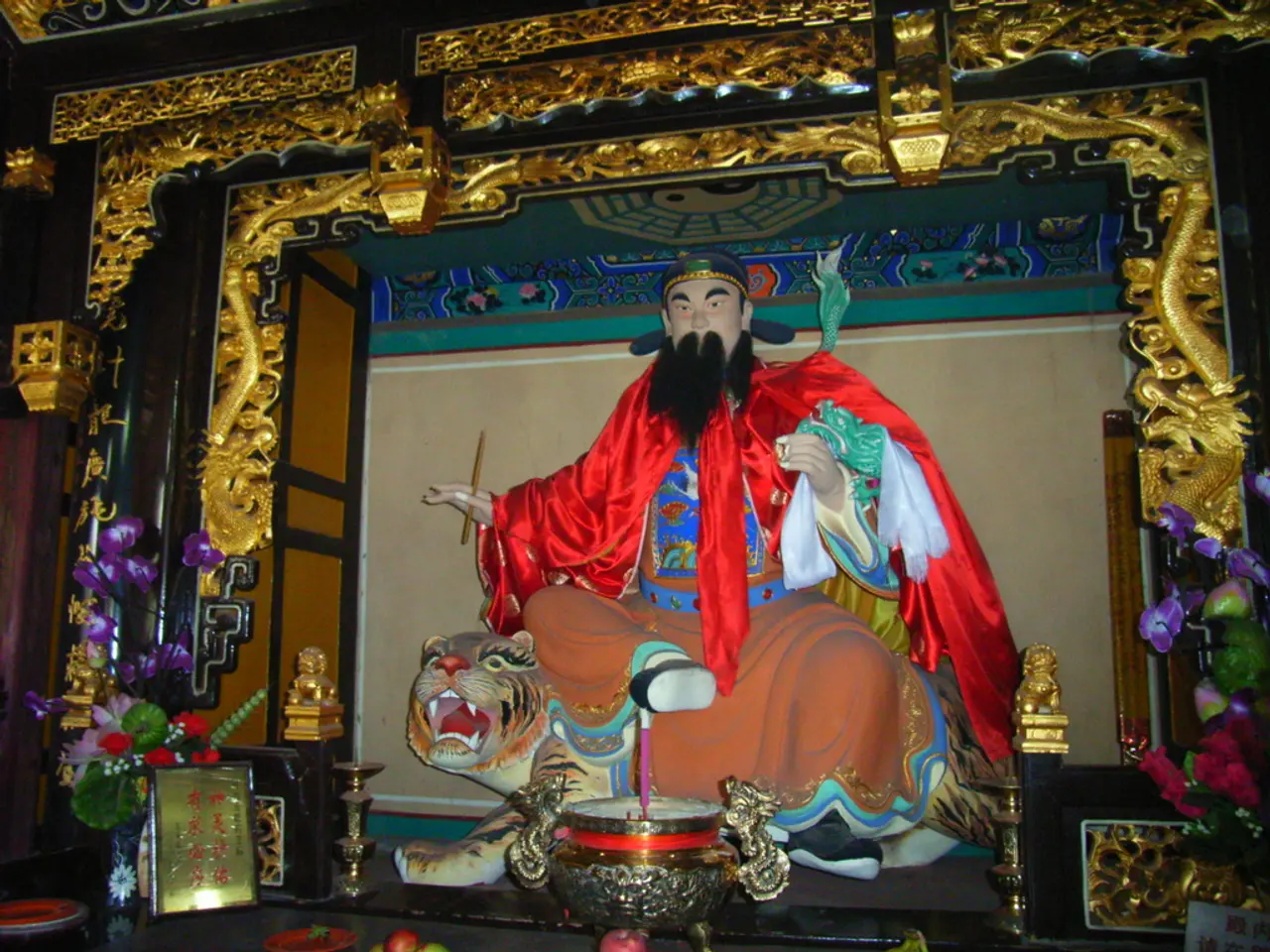Savor historical panoramas and modern beverages at a fresh Beijing coffeehouse
JM Cafe: A Bridge Between History and Modernity in Beijing's Xicheng District
JM Cafe, located at No.30, Dongcha, Gongmenkou, Xicheng District, Beijing, China, is a vibrant architectural renovation project that seamlessly blends the old and the new. The 105-square-meter cafe, adjacent to the White Pagoda Temple, has been transformed into a multi-level space that connects the city, architecture, and history through layered spatial experiences.
The project, described by B.L.U.E. Architecture Studio as establishing a sense of place in a broader urban context, navigates the relationship between the urban site and the temple. It respects the historic fabric of Xicheng District and the cultural significance of the White Pagoda Temple by balancing new interventions with the old neighborhood’s character.
Inside, organic textures of stone and brick blend with sleek stainless steel, creating a dialogue between the traditional and the modern. Three original wooden structural columns have been transformed into sculptural forms, while irregular windows and frosted acrylic light boxes illuminate the interior.
The cafe employs multi-dimensional spatial experiences—from the public plaza to interior spaces to the rooftop—that accommodate diverse user needs and encourage visitors to experience the city’s cultural pulses. This layering symbolizes the blending of historical depth with modern life.
Upstairs, JM Cafe features a rooftop terrace equipped with a sculptural white 'pagoda'. This white 'pagoda' serves as a mini geometric counterpoint to its historic neighbor, the White Pagoda Temple. The contemporary design, with a palette of white and grey, complements the Tibetan pagoda, contributing to the revitalization of this historic area.
By renovation and renewal under government-led urban renewal efforts, JM Cafe acts as a lively cultural and commercial hub, attracting visitors and supporting public life in this traditionally mixed residential-commercial district. It is part of the 'citywalk' trend promoting walkable routes that tour key historical, cultural, and commercial sites in Beijing.
Subscribing to their newsletter offers daily inspiration, escapism, and design stories from around the world. For more information about B.L.U.E. Architecture Studio, visit @blue_architecturestudio.
[1] B.L.U.E. Architecture Studio. (n.d.). JM Cafe. Retrieved from https://www.blue-architecturestudio.com/project/jm-cafe
[4] B.L.U.E. Architecture Studio. (n.d.). JM Cafe. ArchDaily. Retrieved from https://www.archdaily.com/968775/jm-cafe-blue-architecture-studio
Read also:
- Weekly Updates from the German Parliament (Bundestag)
- Rising health care staff shortages in Virginia, as revealed by a watchdog report
- Experiencing Adverse Reactions to Promacta: A Guide to Coping Strategies
- Forward-thinking entrepreneurs and digital nomads, discover a treasure trove of essential resources to empower your online journey with our curated list of top 10 start-up and digital nomad tools.




